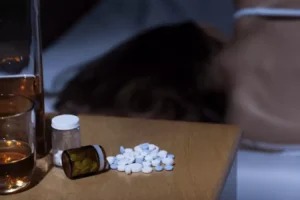
Some research shows that up to 6.2% of the American population lives with this condition. Recognizing that you need help is the first step in your treatment journey. If you or someone you know is showing traits of alcohol use disorder, contact your healthcare provider. While many people may use the term “alcoholic” to describe someone who has an alcohol addiction, the term is offensive and outdated. It’s more appropriate to say “a person with https://ecosoberhouse.com/ alcohol use disorder” or “substance use disorder.” Following a description of the term “alcoholic,” this article will use the more appropriate terminology. Alcohol has a massive effect on our brains and bodies, and drinking a lot of it can have scary side effects in the long term.
Sober Curious? A Brief History, Benefits, and How to Start
- Adults of legal drinking age should not drink more than one drink per day for women and two drinks per day for men, according to the US Dietary Guidelines for Americans.
- Some of the immediate changes you will need to make will be obvious—like not hanging around the people that you used with or obtained drugs from.
- We independently review and approve all products and services recommended on our site.
A sober alcoholic is someone who has been sober long enough to not be suffering from withdrawal symptoms or cravings. For lack of a better term, it’s someone who has their addiction “under control.” For many people, they reach this point in their recovery after a year. They often have legal problems or deteriorating personal relationships. And they usually require addiction treatment or support from peer groups, such as Alcoholics Anonymous, to get sober. One study found that after being sober for one month, people experience decreases in blood pressure and a lower risk for alcohol-related conditions.

What are the Benefits of Maintaining Lifelong Sobriety?
Emotional sobriety involves developing coping mechanisms and emotional resilience, allowing individuals to handle life’s ups and downs in a healthy, balanced way. However, it’s important to note that abstinence is not synonymous with recovery or sobriety. While abstinence focuses solely on the absence of the addictive substance or behavior, recovery and sobriety encompass a broader range of actions and commitments. These include not only abstaining from substance use but also engaging in a holistic approach to recovery that addresses physical, psychological, and social well-being. In this sense, sobriety is an active, ongoing commitment to a set of behaviors and actions that support overall health and prevent relapse.

Start Your Addiction Recovery In Massachusetts
Sobriety is often defined as abstinence from drugs and alcohol, but there is more to it than merely avoiding substance use. Then, the first few weeks of sobriety are when relapse risk is highest. Detox can occur in a hospital setting or as the first part of inpatient or outpatient rehabilitation.

Addiction runs in his family, he said, and past efforts to consume drugs in moderation always failed. Maya Richard-Craven, a journalist from Pasadena, California, said she has thought a lot about mitigating risk since she went to rehab in 2019 after her alcohol use became a problem. “One truth about risk in people is that we all do a very poor job of assessing our own risk,” he said.
Staying sober requires a person to analyze the reasons why they were using the substance, identify their personal triggers for relapse, and avoid falling into a pattern of use again. Knowing relapse signs can help you recognize your risk of relapse, and they may include a return to addictive thinking patterns and compulsive behaviors. Relapse (using substances again after stopping) can and does happen, with 85% of people experiencing relapse at least once and half of them doing so within the first two weeks of sobriety. Sobriety can be a fixed-term goal like staying sober for a set period (such as Dry January), or a lifelong goal of staying sober from all substances. Emotional sobriety is not about ignoring your feelings, but facing them. That way, you’re less likely to reach for a drink or head to a bar when those feelings get overwhelming.
Health Benefits of Being Sober Curious
People in recovery from a substance use disorder frequently have problems meeting work-related responsibilities, maintaining employment, and managing money. If you were active in your addiction for a period of time, you may have developed financial problems. A therapist can help you learn new coping skills, develop new thinking patterns, and address any co-occurring mental health conditions that may make recovery more difficult. Now that you are sober, you may have discovered that some of your past relationships were not only unhealthy but downright toxic.
Sobriety Goes Social: Sober Bars Are on the Rise
“The movement pushes back at the normalization of heavy drinking and stereotypes that those who do not drink are less social or have less fun.” Some people require formal therapy from a rehab center or outpatient therapist to overcome dry drunk syndrome and find motivation to change their behaviors. Others can benefit from self-help programs, such as Alcoholics Anonymous or SMART Recovery. Alcohol addiction is a disease of the brain that causes physical, emotional and behavioral side effects. Abstaining from alcohol and sober alcoholic meaning going through detox allows the body to overcome some physical side effects of addiction, such as cravings and withdrawal symptoms. Abstinence will also help people begin their recovery from liver damage.

Approaches that might have once seemed ludicrous — like treating opioid addiction with psychedelics — have gained broader enthusiasm among doctors as drug overdoses kill tens of thousands of Americans each year. “Just because someone has a drinking problem doesn’t mean they have a problem with every single thing,” Reed said. Of course, it’s important to set (and enforce) clear boundaries around behavior that affects you negatively, like angry outbursts or dishonesty. But it’s also important to cultivate patience as they work toward making changes.
- According to another study, from the Netherlands, people who stopped drinking for just 28 days had a change in a blood test measuring liver inflammation.
- Alcohol addiction is a disease of the brain that causes physical, emotional and behavioral side effects.
- The Substance Abuse and Mental Health Services Administration (SAMHSA) defines heavy alcohol use as binge drinking on 5 or more days in the past month.
Lifestyle Quizzes
Together, these definitions of sobriety can help to create a layered and more flexible understanding of what sobriety is and how it affects people living with alcohol or drug addiction. By Michelle PugleMichelle Pugle writes health articles for award-winning websites, as seen in Healthline, Verywell, Everyday Health, Psych Central, and Health.com. She has a Master’s degree, undergraduate degrees in English and Sociology, a diploma in Holistic Herbal Therapy, and is trained in mental health first aid, anti-violence work, and peer support work. Milestones in sobriety (e.g., 24 hours, a month, three months) are celebrated to recognize the incredible hard work that’s been accomplished through staying sober for a certain length of time.
